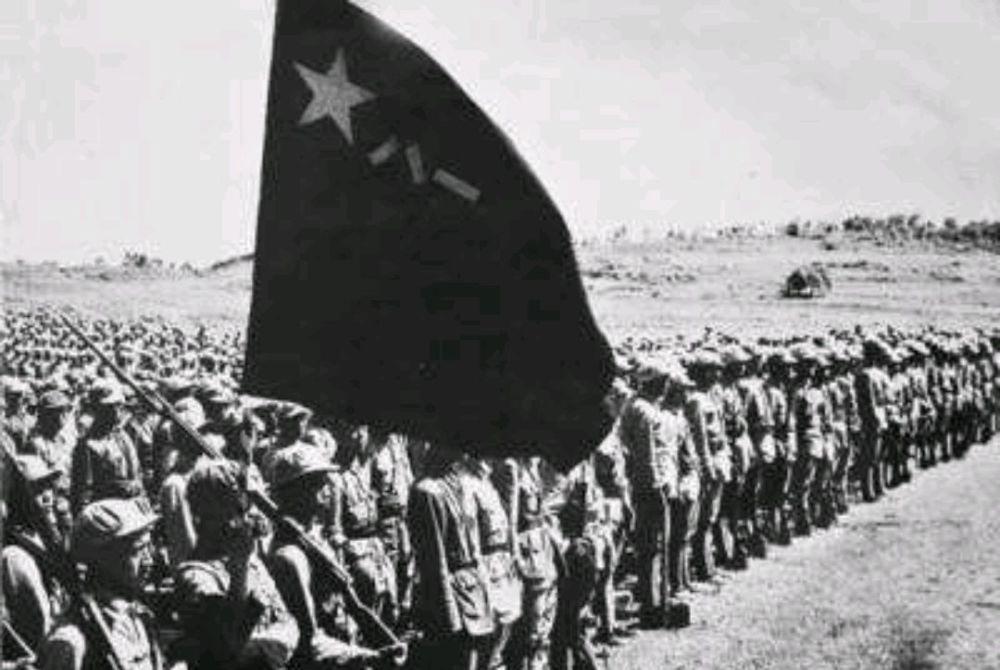Speaking of the West Road Army of the Chinese Workers' and Peasants' Red Army, I think everyone is no stranger to it, and it can be described as a very tragic and magnificent unit. At that time, after the three main forces of the Red Army met the division in Huining, Gansu, in order to obtain more materials and open up communication with the Soviet Union, the Western Route Army was formed to cross the Yellow River and develop westward.
The Western Route Army was mainly composed of the troops of the former Red Fourth Front, and had three armies under its jurisdiction, namely the Fifth Army, the Ninth Army and the Thirtieth Army, totaling more than 21,800 people. The commander-in-chief was Xu Xiangqian and the political commissar was Chen Changhao, both of whom were well-known figures at that time. So who are the commanders of the three armies of the Western Route Army? Two of them died, and one later became a founding lieutenant general, which we can recall.

Dong Zhentang, commander of the Fifth Army of the Western Route Army
Dong Zhentang, born in 1895, is a native of Xingtai, Hebei Province. In his early years, he served in Feng Yuxiang's department and the Nationalist Army, and later participated in leading the famous "Ningdu Uprising", thus abandoning the dark and casting light on the Ming, and began a revolutionary career. After that, Dong Zhentang served as the commander of the Fifth Red Army, and led his troops to participate in the anti-"encirclement and suppression" in the Central Soviet Region and the Long March of the Red Army, during which he fought bravely and made great achievements.
After the three main forces of the Red Army met, Dong Zhentang served as the commander of the Fifth Army of the Western Route Army, leading his troops across the Yellow River and fighting with the powerful Majia Army in the Hexi Corridor. At first, Dong Zhentang's troops were brave and invincible, and once captured the county seat of Gaotai and established a revolutionary regime. But soon, the enemy gathered heavy troops to counterattack, after 9 days and 9 nights of bloody fighting, Gaotai County finally fell in the predicament of running out of ammunition and food, dong Zhentang and more than 3,000 Red Army soldiers died on the battlefield, only 42 years old.
Sun Yuqing, commander of the Ninth Army of the Western Route Army
Sun Yuqing, born in 1909, is a native of Hong'an, Hubei Province. He participated in the jute uprising and was a general of the Red Fourth Front. During the agrarian revolutionary war, Sun Yuqing took one step at a time and successively served as squad leader, platoon leader, company commander, battalion commander, regiment commander, and division commander of the Red Army. After the establishment of the Western Route Army, he served as the commander of the Ninth Army and led his troops to advance to Hexi, Gansu.
After the expedition of the Western Route Army, after five months of fighting, it was finally defeated because of the disparity in strength between the enemy and us. In early 1937, the Western Route Army lost the Battle of Nijiayingzi, which made the situation of the troops worse. In desperation, the Western Route Army decided to disperse the breakthrough, and Sun Yuqing led more than 1,000 people from the right detachment to qilian mountain to carry out guerrilla warfare. But it is regrettable that The commander of Sun Yuqing was unfortunately captured in a battle and later brutally killed by Ma Jiajun at the age of 28.
Cheng Shicai, commander of the Thirtieth Army of the Western Route Army
Cheng Shicai, born in 1912, is a native of Dawu County, Hubei Province. He joined the army at the age of 18, and went through the anti-"encirclement and suppression" and long march in the Eyu-Anhui Soviet District and the Sichuan-Shaanxi Soviet Region, and under the baptism of war, Cheng Shicai gradually grew from a "red devil" to an excellent general, serving as a political commissar, division commander, deputy commander and commander of the regiment.
After the establishment of the Western Route Army, Cheng Shicai served as the commander of the Thirtieth Army and marched west with his brother troops. Later, everyone knew that the Western Route Army suffered a tragic defeat in the Hexi Corridor area, and almost the entire army was destroyed. Cheng Shicai led more than 1,000 people from the left detachment to fight with difficulty, and after nine deaths, he finally waited for the instructions of the central authorities and commanded the remnants to retreat into Xinjiang, which was able to get out of danger.
After that, Cheng Shicai returned to Yan'an and participated in the War of Resistance Against Japanese Aggression and the War of Liberation, where he was brave and invincible on the battlefield and repeatedly accomplished miraculous feats. After the founding of the People's Republic of China, Cheng Shicai was designated by the chairman as the first deputy commander of the Public Security Army, responsible for presiding over the daily work of the Public Security Army. In 1955, Cheng Shicai was awarded the rank of founding lieutenant general, which was admirable.